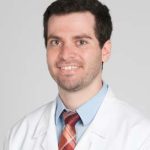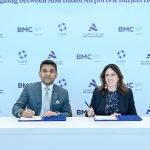Merck, a leading science and technology company, recently took part in the 6th Middle East North Africa Committee for Treatment and Research in Multiple Sclerosis (MENACTRIMS) congress. The event provides a forum of excellence in multiple sclerosis (MS) education and research, for healthcare professionals from across the region. Participation in the congress, reaffirmed Merck’s commitment to improving the lives of patients by addressing areas of significant unmet medical need, such as MS.
Following the COVID-19 pandemic, a strong focus for this year’s congress was reviewing the impact that the virus has had on MS patients and how the vaccine may affect the treatment they receive. This is in line with Merck’s recent research efforts, which, since the beginning of the COVID-19 outbreak, have focused on researching how the pandemic has affected MS patients. The event saw more than 1000 attendees gather, both in-person and virtually, and delivered state-of-the-art presentations from renowned international and regional speakers. In addition, Merck presented a number of abstracts, including 4 which explored the safety and efficacy of COVID-19 vaccines in MS patients and the effect they may have on their ongoing treatment plans. They also hosted a number of educational events, including a Satellite Symposium titled ‘Getting closer to life without MS’, which highlighted how the latest advances in immune reconstitution therapy provide a novel concept for MS therapy and can offer substantial advantages to patients over traditional immunosuppressive therapies1.
As part of an ongoing initiative that was initiated in 2020, Merck provided a grant to support a registry of MS patients who contracted COVID-19. The data, which includes the statistics on MS patients from the UAE, Oman, and Kuwait, was presented during the congress.
MS is a chronic, inflammatory condition of the central nervous system and is the most common disabling neurological disease in young adults. The symptoms of MS can vary, but the most common include blurred vision, numbness or tingling in the limbs, and problems with strength and coordination. Relapsing forms of MS are the most common. It is estimated that approximately 2.3 million people have MS worldwide, and the number of people in the region being diagnosed with the condition is rising annually1. This increase is due to several factors, including a higher incidence of something called ‘urbanization’, which sees an increase in certain risk factors among the general population, such as increased body weight, higher levels of stress and smoking, and decreased sun exposure1.
Professor Bassem Yamout, President of MENACTRIMS, said, “We act as a voice for the MS community, and focus our activities on supporting clinical research. Advancing research is at the very heart of addressing how we treat this disease and will ensure we can improve the lives of MS patients and their loved ones, particularly during challenging times such as the global pandemic. Whenever possible, we collaborate with organizations and companies such as Merck, who support and enhance our mission. Through our educational events, we aim to nurture the next generation of young researchers and provide comprehensive guidelines to improve the diagnosis and treatment of MS in the region. We have already established a regional registry that includes more than 10,000 MS patients, which has helped to boost clinical research in the MENA region.”














